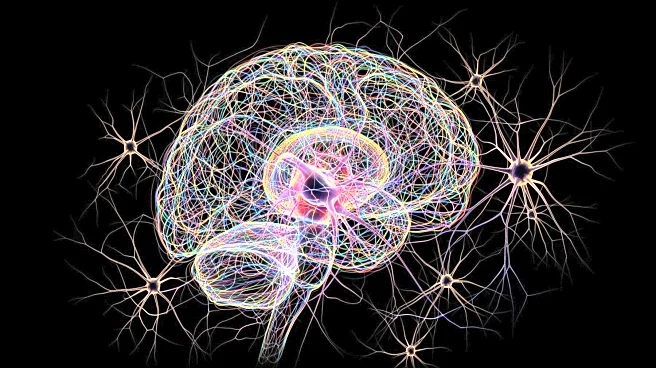What's Happening?
A study published in Nature Communications has found that the human brain undergoes shape changes as it ages, which are linked to cognitive decline. Researchers analyzed over 2,600 brain scans from adults
aged 30 to 97, revealing that the brain does not merely shrink but changes shape in measurable ways. These changes include a sagging effect where the lower parts of the hemispheres spread outward and the upper parts draw together. The study suggests that these shape changes may disrupt the brain's internal coordination and are associated with poorer cognitive performance, particularly in memory and executive function tests.
Why It's Important?
The findings offer a new perspective on brain aging, emphasizing the importance of brain shape in cognitive health. This could lead to early detection methods for dementia risk before symptoms appear, potentially transforming approaches to neurodegenerative diseases like Alzheimer's. Understanding the geometry of the brain may provide insights into the mechanisms of healthy aging and the development of neurodegenerative diseases, offering new pathways for research and treatment.
What's Next?
Further long-term studies are needed to confirm these patterns and explore the biological mechanisms driving these changes. Future research may investigate whether mechanical stress contributes to age-related damage, potentially leading to early warning systems for cognitive impairment. The study opens new avenues for understanding how structural changes in the brain lead to functional decline.
Beyond the Headlines
The study suggests that subtle shifts in brain geometry may affect communication between different brain regions, impacting cognitive function. This could explain why certain regions, like the entorhinal cortex, are particularly vulnerable to pressure and damage, providing insights into Alzheimer's pathology.









